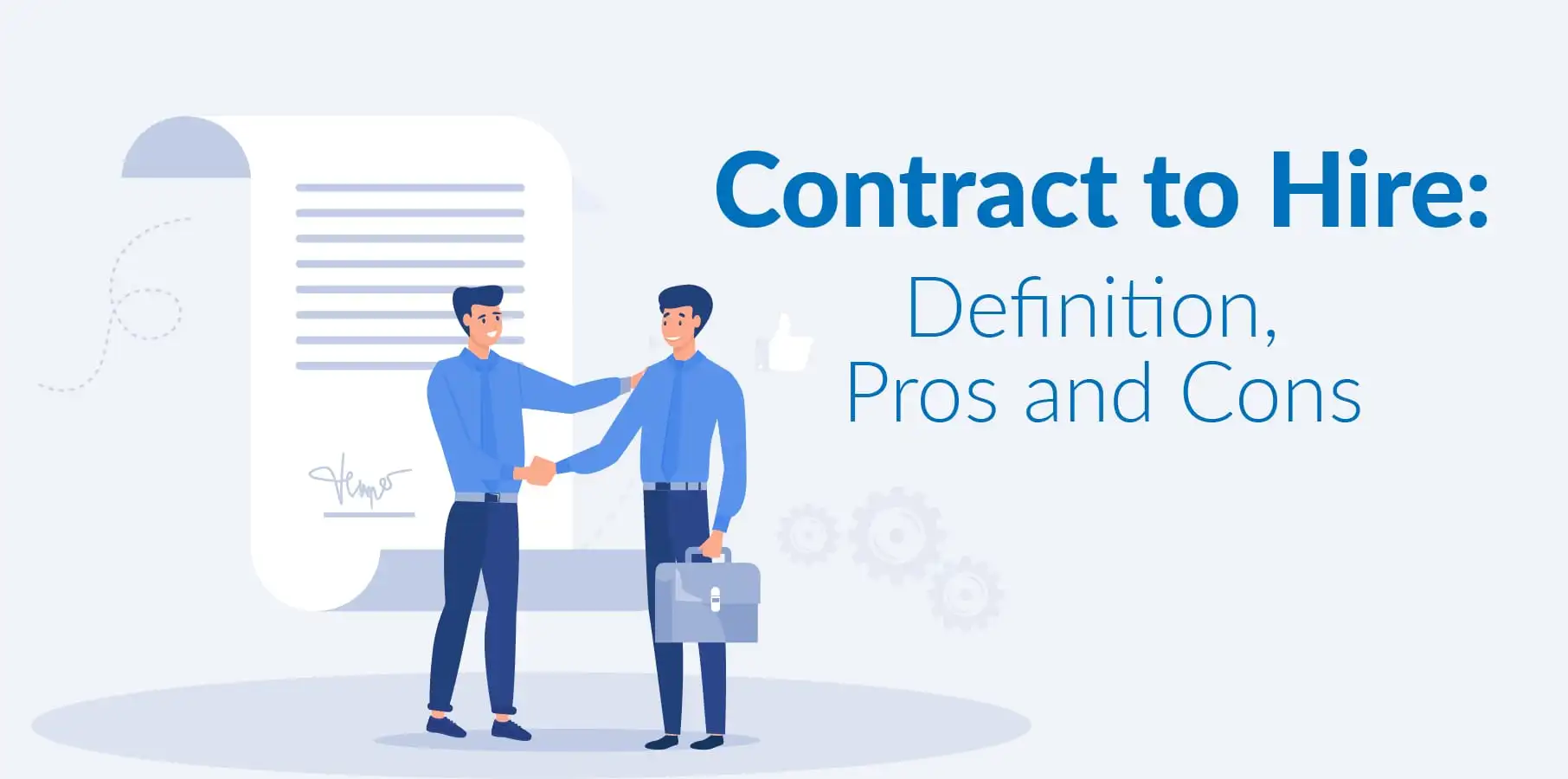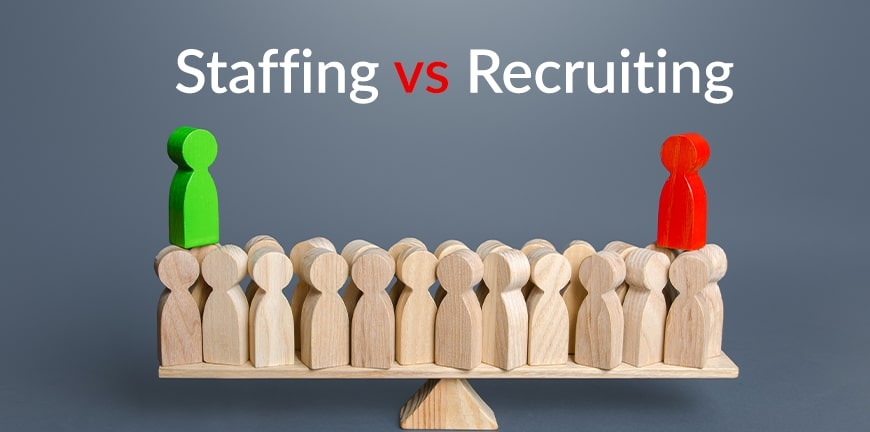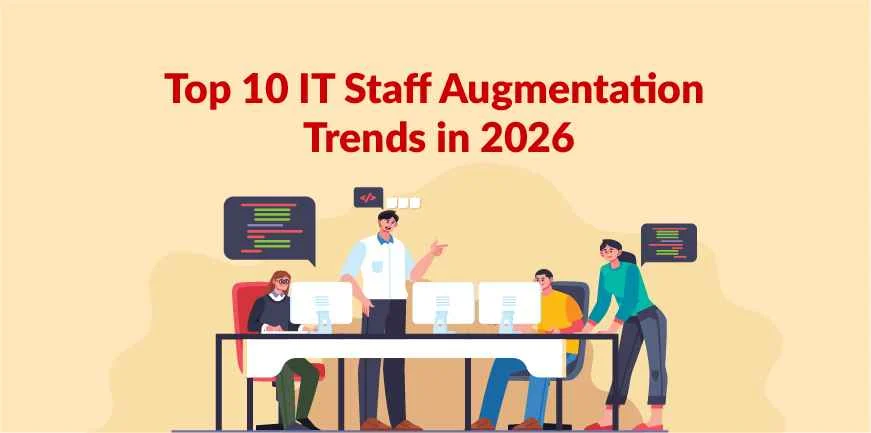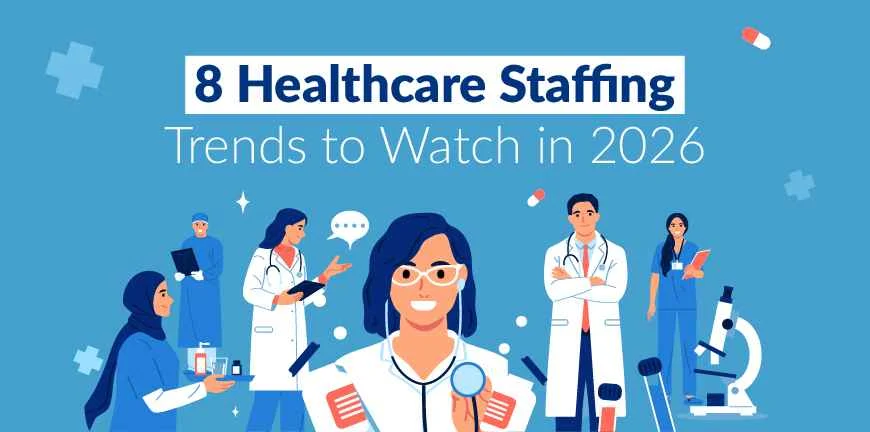
Build-Operate-Transfer (BOT) vs. In-House GCC: Which Model Wins?
14/12/2025
What is Contract-to-Hire (C2H)? Definition, Pros and Cons
14/12/2025- What is Direct Hire and How Does it Work?
- What are the Advantages of Choosing Direct Hires?
- What are the Disadvantages of Direct Hires?
- What is Contract-to-Hire and How Does it Work?
- What are the Advantages of Contract-to-Hire?
- What are the Disadvantages of Contract-to-hire?
- 4 Tips for a Successful Contract-to-Hire Staffing
- What are the Differences Between Contract-to-hire and Direct hire?
- Looking for the right partner?
A growing business is always in need of new employees. With digital technology taking over every business, regardless of whether you are a tech or a non-tech company, you will definitely look for tech professionals with at least a basic digital working knowledge. Now, depending on the needs of your business, when you hire new employees, you have two options: Contract to hire and direct hire.
Both options have their own pros and cons. Depending on your unique business requirements, you can pick one that works well for your organization.
This article discusses the two in detail and maps out the differences between contract-to-hire and direct hire to help you make an informed decision.
What is Direct Hire and How Does it Work?
A direct hire refers to an employee hired and placed by a staffing agency directly to another company’s payroll. Direct hires are full-time employees entitled to benefits and other rewards offered by the company.
While direct hires can be made by the company’s internal recruiters, by following the process of finding and engaging qualified talent, most companies choose to outsource this task to a third-party staffing provider such as Alp Consulting.
Companies like Alp possess a deep understanding and expertise in the recruitment and staffing Industry and is equipped with the necessary resources to find you the best talent.
What are the Advantages of Choosing Direct Hires?
Is Direct hiring right for your organization? Yes, if you are looking to add permanent staff and attract qualified employees to add value to your team and organization for a longer- term period.
Some of the benefits of choosing Direct Hires are-
1. Opportunities to Develop Future Leaders
Direct hires are great for companies looking to hire candidates who stay with the company, provide a long-term commitment, and help add value to the organization’s short and long-term goals. It is a great way to build a talent pipeline, which in turn helps in succession planning and helps see through other talent management strategies.
2. Higher engagement and lower turnover rates
Investing in long-term workers and their potential and development is always a clever idea. They are more likely to be engaged and eager to make better contributions to the productivity of the company. This helps in reducing employee turnover as well as increasing productivity.
3. Cost saving
By engaging with a recruitment firm like Alp Consulting to handle your direct placement needs, not only do you get access to a large pool of talented candidates, but you can also save on spending on your own resources to source and screen candidates. Another advantage is that the new hire will be on your payroll from the start, saving the costs of contract hiring.
What are the Disadvantages of Direct Hires?
Every option has its cons. Similarly, there are a few drawbacks to direct hires. But then again, whether it serves as a disadvantage solely depends on your company’s requirements. Here is what you need to know:
1. Higher fixed costs
Like regular employees, direct hires are employed full-time, paid, and offered company benefits by the organization. Fixed costs like benefits, training, paid time off, etc., may feel like huge, fixed costs to companies in certain situations.
2. Low flexibility
If you are a business looking for candidates for short-term projects or only for a limited period, then direct hires are not the right choice for you. Scaling your workforce up and down can get tricky if you rely on direct hires.
3. Increased risk of a bad hire
If you hire a temporary worker, you always have the option to choose not to extend the contract if they are not the right fit or do not fit the company culture, or for any other reason. But that is not the case with direct hires. In direct placements, if you hire someone and find out they are not suited for the role or are not performing well, you cannot cut short the contract, which both parties would have mutually agreed on during the onboarding. A direct hire could be a hit or a miss. So you must be careful.
What is Contract-to-Hire and How Does it Work?
A contract-to-hire is a short-term placement of an employee in an organization, but with a possibility of turning into a full-time employee, depending on the organization’s decision. A contract to hire an employee may be on the payroll of the recruitment agency or the hiring organization. Most times, it is the former option. But for instance, if the contract worker becomes a permanent employee, then payroll, benefits, and other administrative responsibilities shift from the agency to the organization.
The contract-to-hire model is a practical solution for companies facing layoffs or economic challenges.
An obvious benefit associated with contract-to-hire is that both parties are given the option to work with each other and figure out if the long-term engagement is working or not. In circumstances where it does not, they have the option of choosing others in their place.
What are the Advantages of Contract-to-Hire?
Is contract-to-hire the right option for your organisation? Yes, if you are looking for a skilled employee to work on a particular project, or are looking to add an employee to address the need for extra workforce during seasonal demands, to share the workload with other employees, or have only a short-term requirement.
Here are some of the benefits associated with contract-to-hire-
1. Option to assess the fit and need for the role
Before you consider them for a full-time position, at the end of the contract, you get to assess their fit for the role you are hiring for. You can evaluate their performance as well as determine if there is enough work for them to justify a permanent role.
2. Increased flexibility
Contract-to-hire workers are not one in the full-time employees in your organization. You get to determine the length of their contract period based on the project you need them for, or on an hourly basis based on your business need and budget.
3. Lower fixed costs
A contract-to-hire worker is ona short-term contract with the organization. They are hired for a specific purpose for a particular project or seasonal demands. They do not fall under the regular payroll of your organization, nor are they entitled to benefits or other rewards, avoiding the fixed costs that are incurred from a regular, full-time employee.
4. Faster hiring
If you outsource your contract-to-hire need to an organization like Alp Consulting, you will be doing yourself a favour. As a leading company with over two decades of experience in the staffing industry, we have access to an exceptional pool of candidates for you to pick from. By following a less extensive method, from sourcing to the onboarding process, our team takes care of it all swiftly. This makes it particularly beneficial for you if you are looking to hire workers for an urgent project on an immediate basis.
What are the Disadvantages of Contract-to-hire?
1. Chances of missing good hires
You may miss certain good profiles if you outsource your contract to a staffing firm or an inexperienced third party. On the other hand, if you choose Alp Consulting for your contract-to-hire needs, we will make sure you get the best of the candidates from the talent pool to have your pick from.
2. Decreased loyalty
Some individuals may not fully invest themselves in the work they are hired to do, as they may feel out of place, not part of the team, irrespective of your efforts to make them feel included. This can cause reduced loyalty and engagement.
3. Steeper learning curve
As an individual joining from outside the organization and not part of the internal team, it is a challenge for them to learn the do’s and don’ts of the business, company culture, etc., which could put them in an uncomfortable position, although they are there only for a brief period.
4 Tips for a Successful Contract-to-Hire Staffing
Some of the sure-shot ways to land the best workers through contract-to-hire staffing are-
1. Staffing agencies
This is one of the primary ways that people utilize the contract-to-hire format. Working with a staffing agency like Alp Consulting that specializes in your industry can significantly reduce the time and effort required to find suitable candidates. Due to our vast experience in the staffing industry, we have access to a pool of pre-screened candidates who will prove to be potential hires and fit your requirements quickly. This option is especially helpful if you are new to contract-to-hire and want to ensure a streamlined recruitment process.
2. Utilize job boards specializing in contract roles
Posting the job vacancy on job boards that cater to freelance or temporary roles is one of the most efficient approaches to attracting candidates on a contract-to-hire basis. Websites like Upwork, Freelancer, and even Indeed have filters for contract positions, which can help you directly target candidates interested in or with contract work experience.
3. Leverage social media
Platforms like LinkedIn and even Twitter are excellent tools for finding potential candidates. From advertising job openings to interacting with industry professionals, they can be instrumental in helping you find the best candidates. The LinkedIn search function, for instance, allows you to filter candidates based on skills, past job titles, and locations.
4. College and university career services
Young professionals and recent graduates are often open to contract-to-hire arrangements to gain experience and prove their worth. Reaching out to career services at educational institutions can help you tap into this demographic. Some colleges even offer job-posting services where you can advertise your contract-to-hire roles to students and alumni.
What are the Differences Between Contract-to-hire and Direct hire?
| Contract-to-hire | Direct hire | |
| Engagement | Is a temporary worker with a possibility of becoming permanent at the end of the contract | Permanent |
| Hiring process | Most organizations have an expert third-party provider like Alp to oversee the hiring process. | The organization handles hiring internally, but if they feel like they are falling short, they may hire an agency. |
| Hiring time | The process takes a much shorter time when compared to traditional, permanent staffing | It often leads to a lengthier hiring process due to the risk involved. |
| Employment status | Typically, a contract-to-hire worker is hired, onboarded, and paid by the agency for the duration of the contract | The worker is hired, onboarded, and paid directly by the company |
| Worker benefits | The individual may or may not be eligible for some benefits through the agency, but is not eligible for any benefits from the company. | The individual is eligible for benefits offered directly by the employer |
| Flexibility | The length of the contract, hours, and conclusion of the initial contract can be downsized by the employer if it does not work out, or the work is no longer required. | The company has less flexibility, increased costs, and more risk if the individual does not work out, because the worker is a permanent employee |
Looking for the right partner?
The choice between direct hire and contract-to-hire depends on numerous factors, and neither option is definitively better than the other. There is no one-size-fits-all answer to whether direct hire or contract-to-hire is better for an employer.
It ultimately depends on the specific circumstances, budget, and strategic goals of the organization. Employers should carefully evaluate their unique needs and the nature of the role to make the most appropriate decision for their workforce.
Additionally, they should consider consulting with HR (Human Resources) professionals or legal advisors to ensure compliance with employment laws and regulations, no matter which option they choose.
Whether you are considering contract-to-hire or direct-hire, partnering with an employment agency like Alp Consulting can significantly enhance the efficiency and effectiveness of the recruitment process. We provide access to a wider talent pool, offer expert assistance in candidate selection, and handle administrative details. We will be valuable allies for employers seeking to find the best candidates for their needs.
Contact Us For Business Enquiry

Kasthuri R
Kasthuri R is the Co-Founder & Executive Director at ALP Consulting, bringing over 23 years of experience in search, staffing, and HR consulting. She has been instrumental in driving ALP’s recruitment, employee leasing, and executive search practices across diverse industry verticals. With deep expertise in talent acquisition, HR strategy, and operational management, Kasthuri has built scalable, client-focused solutions that enhance workforce efficiency. Her strategic leadership continues to steer ALP Consulting toward innovation and excellence in people management.




